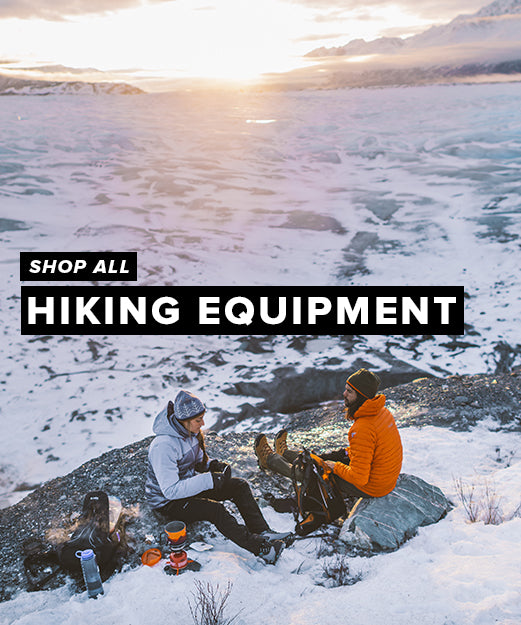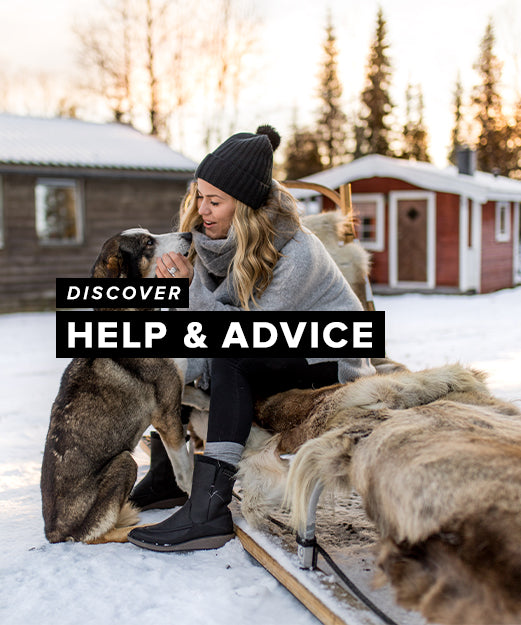 It is not a field that most people probably give much thought to on a daily basis, but mountain rescue workers quickly become an invaluable lifeline to those in need of the assistance that only these specialised volunteers can provide. Every Mountain Rescue (England & Wales) team is an independent registered charity comprised of highly trained volunteers. William, Duke of Cambridge, has been the patron of the Mountain Rescue (England & Wales) since 2007.
When someone needs rescuing, they call 999 and police call out the MREW. A typical incident involves climbers or hikers who get stuck, lost, or injured. While it is the job of the police to search and assist people on land, they do not have the materials or training needed for mountain terrain.
Mountain Rescue (England & Wales) is primarily used for finding and rescuing people stranded in high altitude environments. Teams can help with most any rescue operations however, such as missing person cases anywhere that is difficult to access, and assisting with NHS and government services when there are major incidents of any sort or natural disasters.
Equipment is key for the MREW. Everything has to be specially developed for the durability, efficiency, portability, and simplicity that teams require. The equipment needs to all be carried on the backs of each member and needs to be able withstand the abuse that comes with being transported through rough terrain.
Stretchers have been specially designed to split into two pieces for transport on the backs of members, and the perfect mountain stretcher is perpetually being worked on. The Little Dragon breathing apparatus provides warm air for patients to breathe- patients stranded in high altitudes are often exposed to cold temperatures and may be verging on hypothermia. Team members also carry pulse oximeters, defibrillators, drips, blood pressure monitors, analgesic gas, splints, and standard first aid devices. MREW teams use 4 wheel drive vehicles such as Land Rovers to get them as far as they can before needing to continue on foot.
Volunteers are usually notified of incidents via text message nowadays. Team members use VHF radios once at the incident site which enables them to not only communicate with each other, but also with assistance such as helicopters and ambulances. GPS systems have become standard necessities as well, enabling team members to not only pinpoint where the people in need of help are, but also to figure out how to get to them.
There are other organisations that overlap with the work of Mountain Rescue (England & Wales). The British Cave Rescue Council saves people in caves, but cave and mountain team members can sometimes help each out. Dogs from the National Search and Rescue Dog Association are often useful in reaching patients, but the dogs can only be involved if their handlers are fully certified members of the Mountain Rescue (England & Wales). The HM Coastguard primarily handles incidents involving Britain's many sea cliffs, but MREW has the capability to handle those as well. The Royal Air Force Mountain Rescue Service is meant to handle plane crashes at high altitudes, but if they are available then they can assistant with civilian rescues as well.
As it is part of the military, the RAF Mountain Rescue Service is fully funded by the government. Mountain Rescue (England & Wales) is partially funded by the government for items such as stretchers, ropes, and first aid equipment, but the majority of the necessary financing comes from sponsors and charity fundraising. Many members provide their own clothing and equipment.
It probably goes without saying that Mountain Rescue volunteers are generally outdoor enthusiasts. Mountain walking fitness is essential, and other mountain skills are helpful. Volunteers undergo frequent training in first aid, rope techniques, stretcher carrying, radio communications, search and rescue procedures and techniques, mountaineering and climbing skills, survival skills, and aircraft crash recovery procedures among many others. It is also necessary to become as familiar as possible with the areas covered by the team.
It is important to be willing and flexible to be available for call outs at any time of day or night. Volunteers also need to attend fundraising events to garner support for the team.
Mountain Rescue volunteers do what they do because they want to help save lives and have the skills and interests needed to accomplish that task in some of the most difficult terrains in Britain.
It is not a field that most people probably give much thought to on a daily basis, but mountain rescue workers quickly become an invaluable lifeline to those in need of the assistance that only these specialised volunteers can provide. Every Mountain Rescue (England & Wales) team is an independent registered charity comprised of highly trained volunteers. William, Duke of Cambridge, has been the patron of the Mountain Rescue (England & Wales) since 2007.
When someone needs rescuing, they call 999 and police call out the MREW. A typical incident involves climbers or hikers who get stuck, lost, or injured. While it is the job of the police to search and assist people on land, they do not have the materials or training needed for mountain terrain.
Mountain Rescue (England & Wales) is primarily used for finding and rescuing people stranded in high altitude environments. Teams can help with most any rescue operations however, such as missing person cases anywhere that is difficult to access, and assisting with NHS and government services when there are major incidents of any sort or natural disasters.
Equipment is key for the MREW. Everything has to be specially developed for the durability, efficiency, portability, and simplicity that teams require. The equipment needs to all be carried on the backs of each member and needs to be able withstand the abuse that comes with being transported through rough terrain.
Stretchers have been specially designed to split into two pieces for transport on the backs of members, and the perfect mountain stretcher is perpetually being worked on. The Little Dragon breathing apparatus provides warm air for patients to breathe- patients stranded in high altitudes are often exposed to cold temperatures and may be verging on hypothermia. Team members also carry pulse oximeters, defibrillators, drips, blood pressure monitors, analgesic gas, splints, and standard first aid devices. MREW teams use 4 wheel drive vehicles such as Land Rovers to get them as far as they can before needing to continue on foot.
Volunteers are usually notified of incidents via text message nowadays. Team members use VHF radios once at the incident site which enables them to not only communicate with each other, but also with assistance such as helicopters and ambulances. GPS systems have become standard necessities as well, enabling team members to not only pinpoint where the people in need of help are, but also to figure out how to get to them.
There are other organisations that overlap with the work of Mountain Rescue (England & Wales). The British Cave Rescue Council saves people in caves, but cave and mountain team members can sometimes help each out. Dogs from the National Search and Rescue Dog Association are often useful in reaching patients, but the dogs can only be involved if their handlers are fully certified members of the Mountain Rescue (England & Wales). The HM Coastguard primarily handles incidents involving Britain's many sea cliffs, but MREW has the capability to handle those as well. The Royal Air Force Mountain Rescue Service is meant to handle plane crashes at high altitudes, but if they are available then they can assistant with civilian rescues as well.
As it is part of the military, the RAF Mountain Rescue Service is fully funded by the government. Mountain Rescue (England & Wales) is partially funded by the government for items such as stretchers, ropes, and first aid equipment, but the majority of the necessary financing comes from sponsors and charity fundraising. Many members provide their own clothing and equipment.
It probably goes without saying that Mountain Rescue volunteers are generally outdoor enthusiasts. Mountain walking fitness is essential, and other mountain skills are helpful. Volunteers undergo frequent training in first aid, rope techniques, stretcher carrying, radio communications, search and rescue procedures and techniques, mountaineering and climbing skills, survival skills, and aircraft crash recovery procedures among many others. It is also necessary to become as familiar as possible with the areas covered by the team.
It is important to be willing and flexible to be available for call outs at any time of day or night. Volunteers also need to attend fundraising events to garner support for the team.
Mountain Rescue volunteers do what they do because they want to help save lives and have the skills and interests needed to accomplish that task in some of the most difficult terrains in Britain.
A Day in the Life of a Mountain Rescue Team
 It is not a field that most people probably give much thought to on a daily basis, but mountain rescue workers quickly become an invaluable lifeline to those in need of the assistance that only these specialised volunteers can provide. Every Mountain Rescue (England & Wales) team is an independent registered charity comprised of highly trained volunteers. William, Duke of Cambridge, has been the patron of the Mountain Rescue (England & Wales) since 2007.
When someone needs rescuing, they call 999 and police call out the MREW. A typical incident involves climbers or hikers who get stuck, lost, or injured. While it is the job of the police to search and assist people on land, they do not have the materials or training needed for mountain terrain.
Mountain Rescue (England & Wales) is primarily used for finding and rescuing people stranded in high altitude environments. Teams can help with most any rescue operations however, such as missing person cases anywhere that is difficult to access, and assisting with NHS and government services when there are major incidents of any sort or natural disasters.
Equipment is key for the MREW. Everything has to be specially developed for the durability, efficiency, portability, and simplicity that teams require. The equipment needs to all be carried on the backs of each member and needs to be able withstand the abuse that comes with being transported through rough terrain.
Stretchers have been specially designed to split into two pieces for transport on the backs of members, and the perfect mountain stretcher is perpetually being worked on. The Little Dragon breathing apparatus provides warm air for patients to breathe- patients stranded in high altitudes are often exposed to cold temperatures and may be verging on hypothermia. Team members also carry pulse oximeters, defibrillators, drips, blood pressure monitors, analgesic gas, splints, and standard first aid devices. MREW teams use 4 wheel drive vehicles such as Land Rovers to get them as far as they can before needing to continue on foot.
Volunteers are usually notified of incidents via text message nowadays. Team members use VHF radios once at the incident site which enables them to not only communicate with each other, but also with assistance such as helicopters and ambulances. GPS systems have become standard necessities as well, enabling team members to not only pinpoint where the people in need of help are, but also to figure out how to get to them.
There are other organisations that overlap with the work of Mountain Rescue (England & Wales). The British Cave Rescue Council saves people in caves, but cave and mountain team members can sometimes help each out. Dogs from the National Search and Rescue Dog Association are often useful in reaching patients, but the dogs can only be involved if their handlers are fully certified members of the Mountain Rescue (England & Wales). The HM Coastguard primarily handles incidents involving Britain's many sea cliffs, but MREW has the capability to handle those as well. The Royal Air Force Mountain Rescue Service is meant to handle plane crashes at high altitudes, but if they are available then they can assistant with civilian rescues as well.
As it is part of the military, the RAF Mountain Rescue Service is fully funded by the government. Mountain Rescue (England & Wales) is partially funded by the government for items such as stretchers, ropes, and first aid equipment, but the majority of the necessary financing comes from sponsors and charity fundraising. Many members provide their own clothing and equipment.
It probably goes without saying that Mountain Rescue volunteers are generally outdoor enthusiasts. Mountain walking fitness is essential, and other mountain skills are helpful. Volunteers undergo frequent training in first aid, rope techniques, stretcher carrying, radio communications, search and rescue procedures and techniques, mountaineering and climbing skills, survival skills, and aircraft crash recovery procedures among many others. It is also necessary to become as familiar as possible with the areas covered by the team.
It is important to be willing and flexible to be available for call outs at any time of day or night. Volunteers also need to attend fundraising events to garner support for the team.
Mountain Rescue volunteers do what they do because they want to help save lives and have the skills and interests needed to accomplish that task in some of the most difficult terrains in Britain.
It is not a field that most people probably give much thought to on a daily basis, but mountain rescue workers quickly become an invaluable lifeline to those in need of the assistance that only these specialised volunteers can provide. Every Mountain Rescue (England & Wales) team is an independent registered charity comprised of highly trained volunteers. William, Duke of Cambridge, has been the patron of the Mountain Rescue (England & Wales) since 2007.
When someone needs rescuing, they call 999 and police call out the MREW. A typical incident involves climbers or hikers who get stuck, lost, or injured. While it is the job of the police to search and assist people on land, they do not have the materials or training needed for mountain terrain.
Mountain Rescue (England & Wales) is primarily used for finding and rescuing people stranded in high altitude environments. Teams can help with most any rescue operations however, such as missing person cases anywhere that is difficult to access, and assisting with NHS and government services when there are major incidents of any sort or natural disasters.
Equipment is key for the MREW. Everything has to be specially developed for the durability, efficiency, portability, and simplicity that teams require. The equipment needs to all be carried on the backs of each member and needs to be able withstand the abuse that comes with being transported through rough terrain.
Stretchers have been specially designed to split into two pieces for transport on the backs of members, and the perfect mountain stretcher is perpetually being worked on. The Little Dragon breathing apparatus provides warm air for patients to breathe- patients stranded in high altitudes are often exposed to cold temperatures and may be verging on hypothermia. Team members also carry pulse oximeters, defibrillators, drips, blood pressure monitors, analgesic gas, splints, and standard first aid devices. MREW teams use 4 wheel drive vehicles such as Land Rovers to get them as far as they can before needing to continue on foot.
Volunteers are usually notified of incidents via text message nowadays. Team members use VHF radios once at the incident site which enables them to not only communicate with each other, but also with assistance such as helicopters and ambulances. GPS systems have become standard necessities as well, enabling team members to not only pinpoint where the people in need of help are, but also to figure out how to get to them.
There are other organisations that overlap with the work of Mountain Rescue (England & Wales). The British Cave Rescue Council saves people in caves, but cave and mountain team members can sometimes help each out. Dogs from the National Search and Rescue Dog Association are often useful in reaching patients, but the dogs can only be involved if their handlers are fully certified members of the Mountain Rescue (England & Wales). The HM Coastguard primarily handles incidents involving Britain's many sea cliffs, but MREW has the capability to handle those as well. The Royal Air Force Mountain Rescue Service is meant to handle plane crashes at high altitudes, but if they are available then they can assistant with civilian rescues as well.
As it is part of the military, the RAF Mountain Rescue Service is fully funded by the government. Mountain Rescue (England & Wales) is partially funded by the government for items such as stretchers, ropes, and first aid equipment, but the majority of the necessary financing comes from sponsors and charity fundraising. Many members provide their own clothing and equipment.
It probably goes without saying that Mountain Rescue volunteers are generally outdoor enthusiasts. Mountain walking fitness is essential, and other mountain skills are helpful. Volunteers undergo frequent training in first aid, rope techniques, stretcher carrying, radio communications, search and rescue procedures and techniques, mountaineering and climbing skills, survival skills, and aircraft crash recovery procedures among many others. It is also necessary to become as familiar as possible with the areas covered by the team.
It is important to be willing and flexible to be available for call outs at any time of day or night. Volunteers also need to attend fundraising events to garner support for the team.
Mountain Rescue volunteers do what they do because they want to help save lives and have the skills and interests needed to accomplish that task in some of the most difficult terrains in Britain.
 NEW!! Free UK Delivery
NEW!! Free UK Delivery Hassle-Free Returns
Hassle-Free Returns Clearpay
Clearpay









